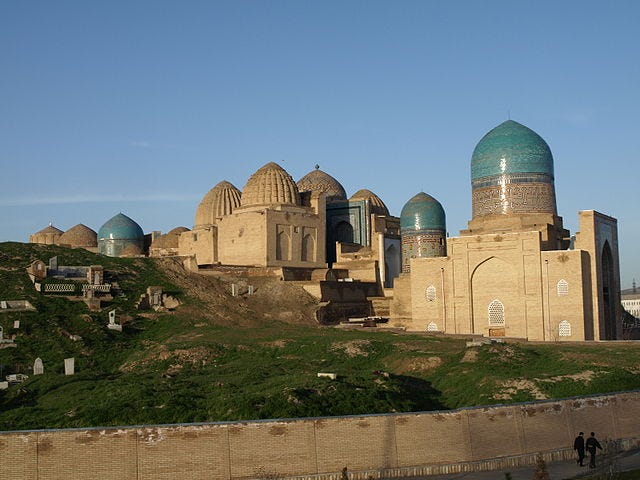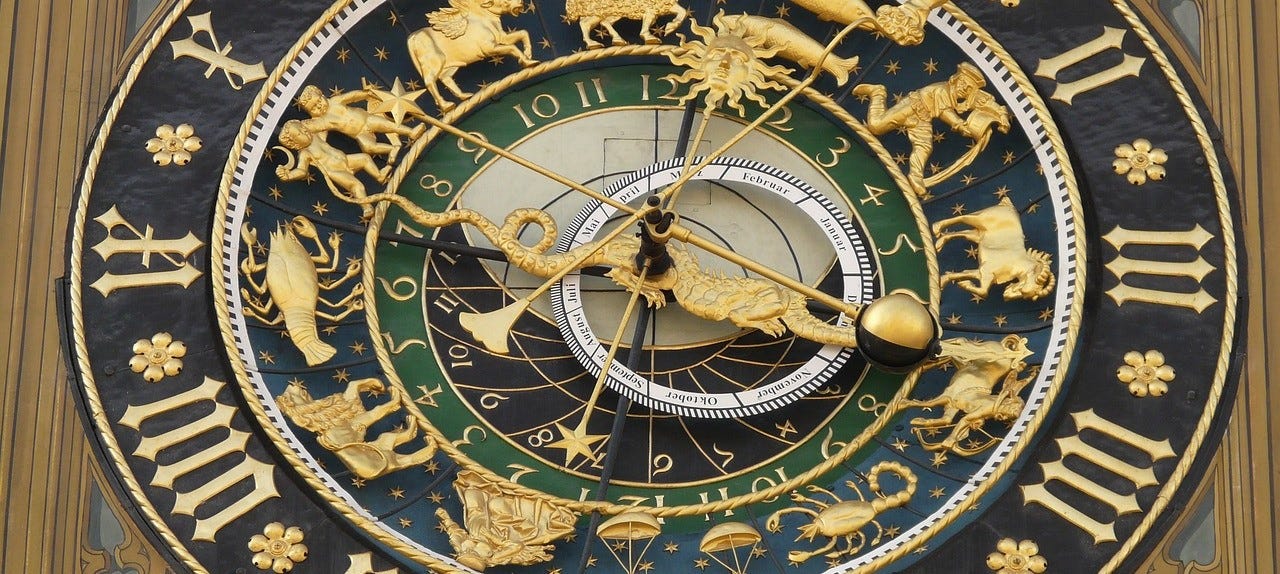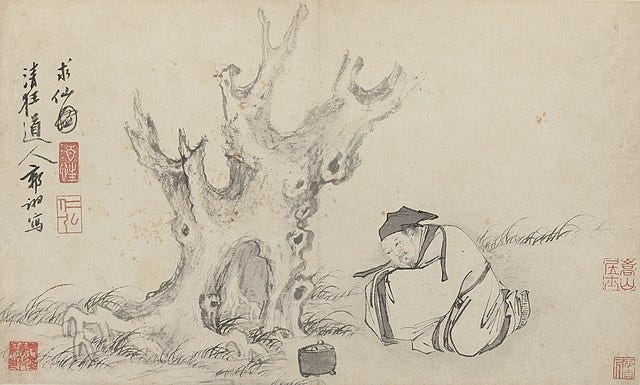In Which the Master Witnesses a Full Solar Eclipse and Meets the Emperor Genghis Khan
In the year 1219 world conqueror Genghis Khan summoned to his court a venerated Taoist priest, Qui Chuji, or Master Ch'ang Ch'un. The Khan of All Between the Oceans was seeking an elixir for eternal life and had heard that Qui might be possessed of such a formula. The invitation came to Master Ch'un on a golden tablet. Among other lovely words, the Emperor (Genghis Khan) implored Master Ch'un to "...move thy sainted steps...have pity upon me and communicate to me the means of preserving life."
In his most worshipful reply to Genghis Khan, Master Ch'ang Ch'un responded, "I have heard that the emperor has been gifted by Heaven with such valour and wisdom as has never been seen in ancient times or in our own days."
The master (Ch'un) traveled to Peking only to find the emperor (Genghis) gone to the far, far west. As the master was an old man, he inquired of a messenger if he might simply wait in Peking for the emperor's return. He received the answer that such would not be possible. To make matters worse, a harem that the emperor had requested was to accompany them. 'How can I,' he lamented, 'travel in the company of girls?'
After waiting through the winter, Ch'un set out again with his Mongol escort in February 1221. Following the Kherlen River to the southwest, they witnessed a full solar eclipse on May 23, at noon. Master Ch'un's secretary, Li Chi Chang, reported that the sky grew so dark the stars could be seen, but it soon brightened again.

The party continued further west along the Silk Road and settled in the oasis city of Samarkand to pass the winter of 1221-1222. While there, Master Ch'ang consulted with astronomers regarding their observations of the eclipse, who told him they had seen 6/10 coverage of the sun, with the greatest coverage between 7 and 9 o'clock in the morning.
Kuny Ying ta, in his commentary on the Ch'un ts'iu (Spring and Autumn Annals by Confucius), says of observing the eclipse:
"When it happens that the moon stands opposite the sun, we have an eclipse; but it is only observable for those who are straight under the moon. As regards those who are distant from this spot, the aspect of the eclipse changes for them at every thousand li. If one take, for instance, a fan, and put it before a light, //[p.80] then a place will be seen entirely covered by the shadow; whereas on the sides, where there is gradually more light, one is by degrees farther removed from the overshadowed place."
One li, to clarify, measures approximately one-quarter mile, or 430 meters, in length.
The Master and the Emperor did finally meet in the Hindu Kush region of today's Afghanistan. Alas, the Master possessed no such secret to eternal life to offer the aging tyrant. The emperor declared the Master 'immortal,' and Ch'ang Ch'un thus returned home. In all, his sojourn lasted three years. Although the khan eventually succumbed to that inevitable fate called death, as did Master Ch'ang Ch'un in the same year, a written report of the journey has come down to us through the ages. It is a fascinating travelogue through a region remote and unknown to the 13th century traveler, and remains an exotic destination today.
The report can be found in book form on Amazon and other online sellers:
The Travels of an Alchemist - The Journey of the Taoist Ch'ang-Ch'ung from China to the Hindu Kush at the Summons of Chinghiz Khan (as recorded by his disciple Li Chih Ch'ang)
A summary of Li Chih Ch'ang's report from which I drew the information for this blog post can be found here:
https://depts.washington.edu/silkroad/texts/changchun.html





Another great article on the life of Genghis Khan and so timely!